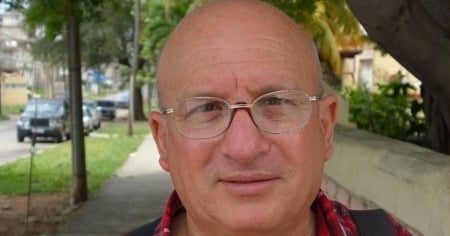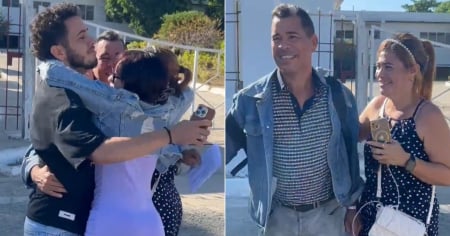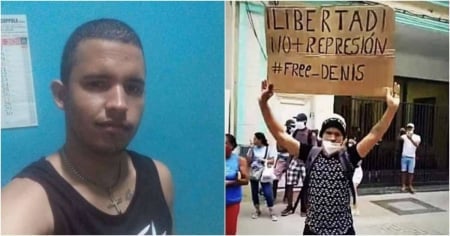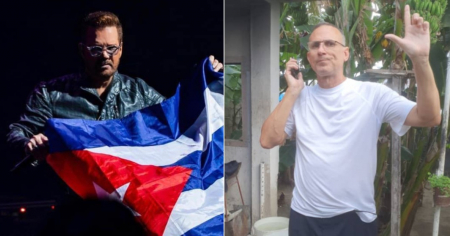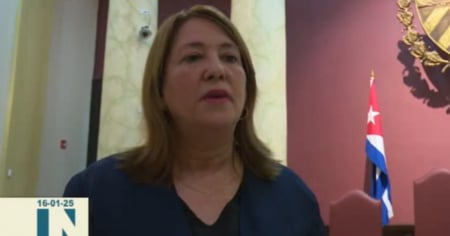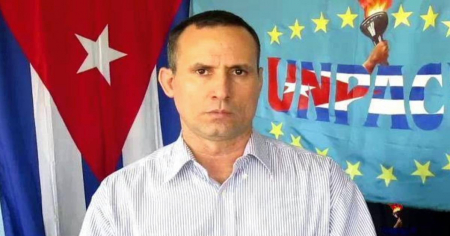
Related videos:
In the context of the recent releases of political prisoners in Cuba, Brenda Díaz, recognized as the only transgender person identified as a political prisoner in the country, was released this Saturday after spending more than two years in prison.
The activist Marta María Ramírez confirmed the news through a post on social media, emphasizing that the conditions of her release are still unclear and refraining from mentioning Brenda's birth name, known as "deadname," out of respect for her identity.
"Brenda Díaz has been released, the only transgender person identified as a political prisoner after the peaceful demonstrations on July 11 in Cuba. I don’t know the conditions of her release, and I won’t share the original post because it includes her deadname. Cuban prisons are filled with transgender women, due to the 'Estado Peligroso' designation, a type of political imprisonment," Ramírez said on Facebook.
A case that represents the vulnerability of transgender women in Cuba
Brenda was arrested and sentenced to 14 years of imprisonment in July 2021 after participating in the peaceful protests of July 11, where thousands of Cubans took to the streets to demand freedom and improvements in living conditions.
Since their detention, their case has been marked by allegations of abuse, discrimination, and negligence on the part of the prison authorities.
Accused of public disorder and contempt, Brenda faced extreme conditions during her time in prison, including beatings and confinement in punishment cells, according to reports collected by human rights organizations and independent media.
International and national reactions
The release of Brenda comes after an intense campaign of international pressure. Organizations such as the United States Department of State and Human Rights Watch repeatedly condemned her imprisonment, describing it as a case of political retaliation and discrimination based on her gender identity.
In August 2022, a cassation appeal that could have reviewed his sentence was denied, causing outrage among activists and public figures.
A context of broader releases
Brenda's case adds to the recent releases of other political prisoners in Cuba. This gesture, which the Cuban regime distances from Joe Biden's decision to remove Cuba from the list of state sponsors of terrorism, has been announced as a result of talks between Havana and the Vatican.
Among those released from prison is José Daniel Ferrer, leader of the Patriotic Union of Cuba, who was detained during the peaceful protests on July 11th.
Although these "liberations" have been celebrated by some sectors, critics warn that they do not represent a structural solution to the human rights violations on the island.
Brenda's Struggle in Prison
During her imprisonment, Brenda Díaz reported multiple assaults and the lack of recognition of her gender identity within the Cuban penitentiary system. She was placed in a male prison, where she was exposed to constant acts of physical and psychological violence.
In January 2024, it was reported that Brenda had been sent to a punishment cell after attempting to defend her rights. This action sparked a new wave of condemnation from organizations that demand respect for human rights in Cuba.
Additionally, in a letter sent from prison in April 2023, Brenda stated: "I will not give up", demonstrating her determination despite the adversities. This message resonated within the LGBTQ+ community and among Cuban exiles, who intensified efforts to raise awareness of her case.
Brenda's situation also exposed the inconsistencies in the government's official discourse regarding diversity and LGBTQ+ rights.
Mariela Castro, director of CENESEX and daughter of the dictator Raúl Castro, stated in May 2023 that Brenda was “very well taken care of” in the men's prison, comments that were publicly denied by Brenda's mother and activists who reported the precarious conditions she was in.
The lack of effective implementation of the reforms promised by CENESEX, such as the recognition of gender identity in prison regulations, has been pointed out as an example of authorities' non-compliance. Although these measures were announced in 2023, no significant changes have materialized to date.
The release of Brenda Díaz does not represent a structural solution to the problems faced by transgender individuals and political prisoners in Cuba. Reports of abuse and repression by the regime persist, and the situation in Cuban prisons remains critical.
Filed under:

